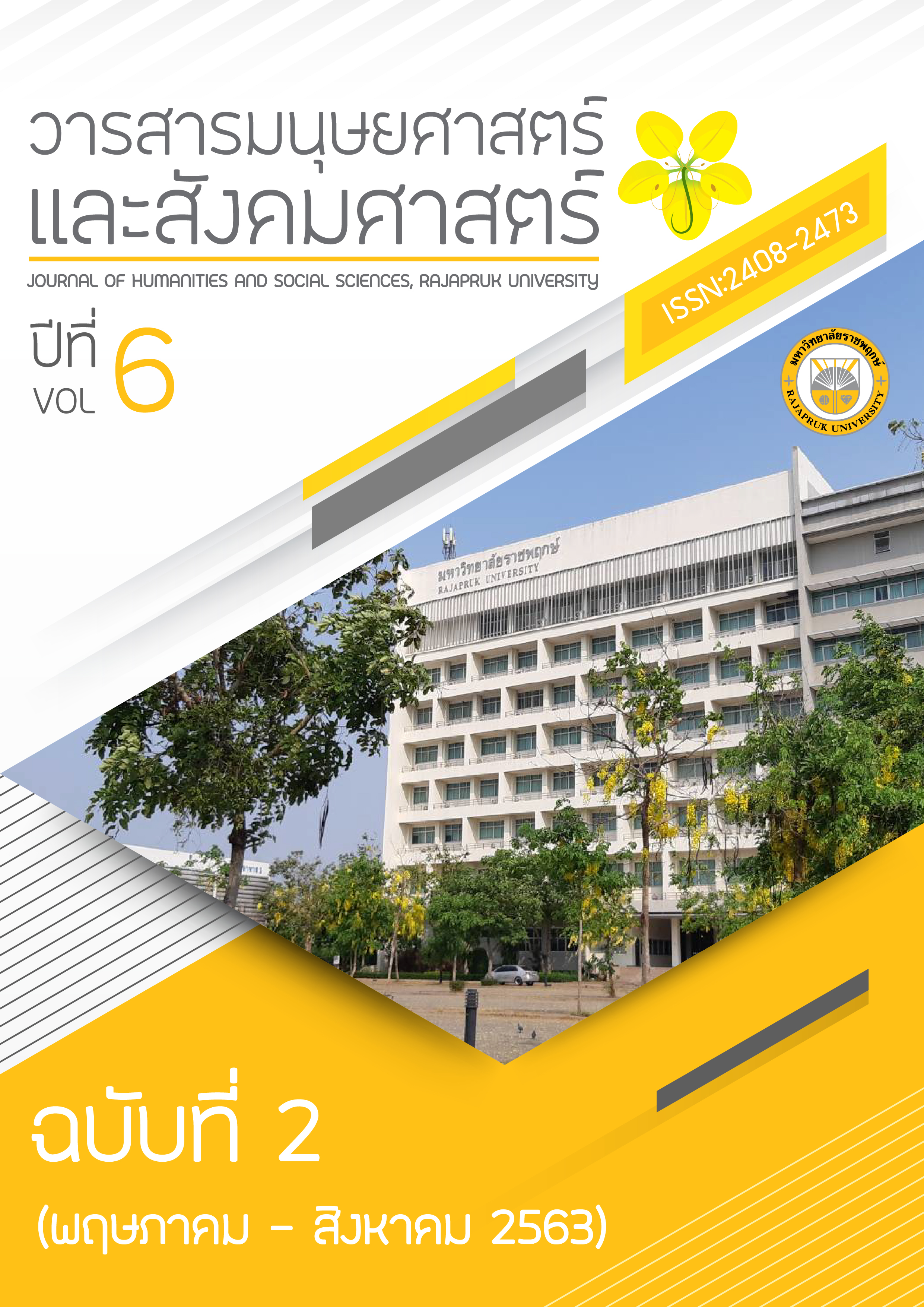Factors Affecting Employees’ Organizational Loyalty of Electricity Generating Authority of Thailand (EGAT) at Headquarter
Main Article Content
Abstract
The study aims to: 1) study individual factors that affect the organization loyalty of employees of the Electricity Generating Authority of Thailand (EGAT) at Headquarter, 2) study motivation factors that affect the organization loyalty of employees of the Electricity Generating Authority of Thailand (EGAT) at Headquarter, and 3) study the hygiene factors that affect the organization loyalty of employees of the Electricity Generating Authority of Thailand (EGAT) at Headquarter. The samples for the research are 400 people who have worked at the Electricity Generating Authority of Thailand (EGAT) at Headquarter. The researchers used the questionnaire as a tool to gather data from a sample group, used the descriptive statistics which including frequency, percentage, mean, and standard deviation, and used the inferential statistics which including Independent Sample t-test, One-Way ANOVA and multiple regression analysis to analyze data. The result was found 1) Personal factors include age, education level, marital status, level in job, average monthly income and work experience were found difference affected the organization loyalty of employees of the Electricity Generating Authority of Thailand (EGAT) at Headquarter. 2) The motivational factors in terms of relationship with work itself, achievement in work, responsibility, recognition and advancement and growth in capacity had affected the organization loyalty of employees of the Electricity Generating Authority of Thailand (EGAT) at Headquarter with a statistical a significance level of .05 and predictive level at 21.10 percent, and 3) The hygiene factors in terms of relationship with working conditions, relationship with colleagues, supervision technical, personal life and organizational policy had affected the organization loyalty of employees of the Electricity Generating Authority of Thailand (EGAT) at Headquarter with a statistical significance level of .05 and predictive level at 38 percent.
Article Details
References
การไฟฟ้าฝ่ายผลิตแห่งประเทศไทย. (2562). ข้อมูลผู้ปฏิบัติงานการไฟฟ้าฝ่ายผลิตแห่งประเทศไทย. นนทบุรี: กองสื่อสารภายนอก ฝ่ายสื่อสารองค์การ การไฟฟ้าฝ่ายผลิตแห่งประเทศไทย.
ไกรวัลย์ อรัญวาท และ ศุภกร กลิ่นหอม. (2560). ปัจจัยที่มีผลต่อความพึงพอและความผูกพันต่อองค์กรของพนักงานบริษัทผลิตชิ้นส่วนยานยนต์ นิคมอุตสาหกรรมอมตะซิตี้ จังหวัดระยอง. วารสารวิชาการบัณฑิตศึกษาและสังคมศาสตร์ มหาวิทยาลัยราชภัฏอุตรดิตถ์, 7(1): 1-16.
ณัฏฐพันธ์ เขจรนันทน์. (2551). พฤติกรรมองค์การ. กรุงเทพฯ: ซีเอ็ดยูเคชั่น.
นภดล เตชัย. (2559). ปัจจัยที่มีอิทธิพลต่อความผูกพันต่อองค์กรและความสำเร็จในการทำงานของพนักงานธนาคารเพื่อการเกษตรและสหกรณ์การเกษตร (ธ.ก.ส.) ฝ่ายกิจการสาขาภาคเหนือตอนล่าง. วิทยานิพนธ์บริหารธุรกิจมหาบัณฑิต คณะบริหารธุรกิจ มหาวิทยาลัยราชภัฏอุตรดิตถ์.
ภาวิณี เพชรสว่าง. (2552). พฤติกรรมองค์การ. กรุงเทพฯ: วิรัตน์ เอ็ดดูเคชั่น.
สุดาวรรณ อริยะทรัพย์. (2554). วิธีสร้างแรงจูงใจคน. กรุงเทพฯ: สำนักพิมพ์บีมีเดีย
สุนทรี พัชรพันธ์. (2553). ประชากรศึกษา. กรุงเทพฯ: โอเดียนสโตร์.
อนิวัช แก้วจำนงค์. (2552). การจัดการทรัพยากรมนุษย์. กรุงเทพฯ: ศูนย์หนังสือมหาวิทยาลัยทักษิณ.
Chester, I. B. (1938). The function of an executive. Cambridge: Harvard University Press.
Herzberg et al. (1959). The Motivation of work. New York: John Wiley & Sons.
Maslow, A. (1959). Motivation and Personality. New York: Harper and Row.
Steers, R. M. & Porter, L. W. (1983). Motivation and Work Behavior. 3rd ed. New York: McGraw-Hill.
Walton. (1975). The Quality of Working Life. New York: Free Press.
Yamane, Taro. (1973). Statistics: An Introductory Analysis. 3rd ed. Network: Harper and Row Publication.


